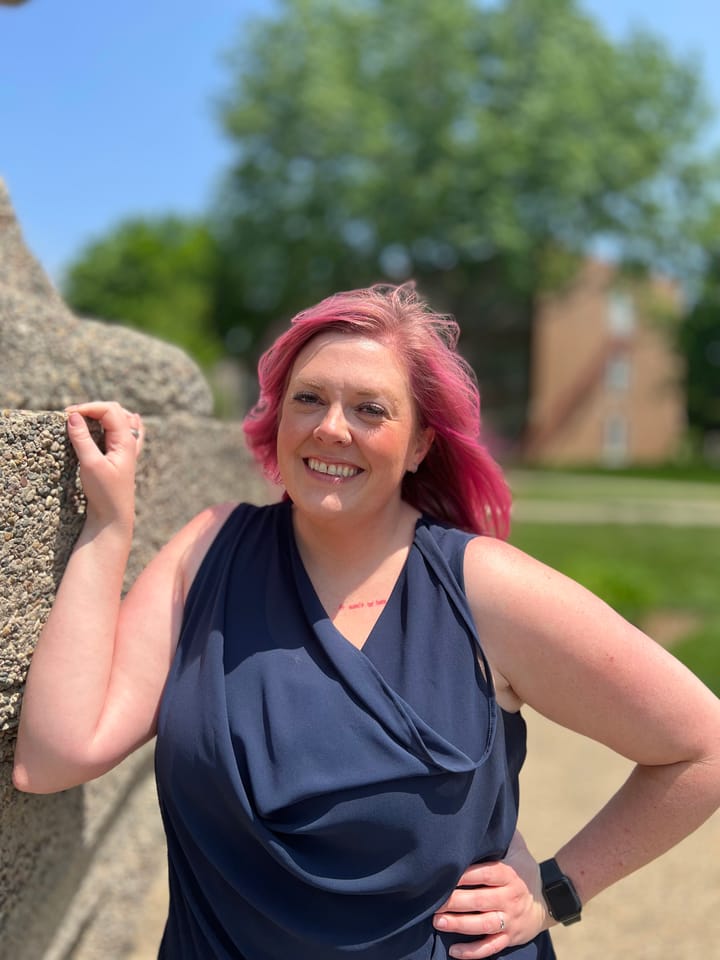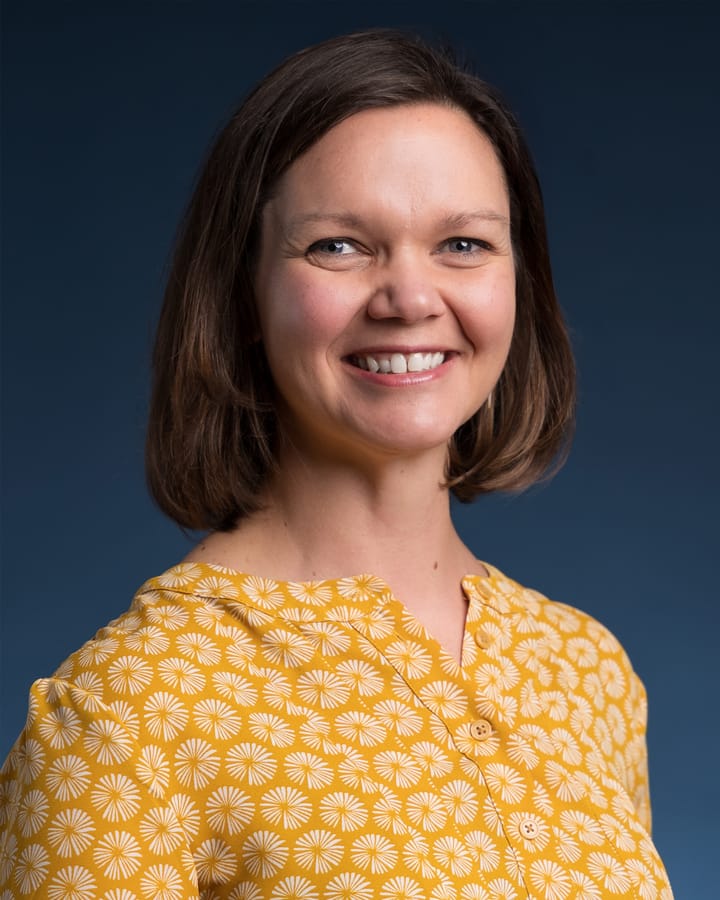Professors, students adapt to hybrid classes for fall
This semester, professors across campus had to decide how to teach their courses amid a pandemic. Some have chosen to hold class completely in person, while others with pre-existing health concerns are holding classes entirely online. Many have found themselves in the middle, structuring their courses in a new, hybrid format.
The hybrid-flex design is part of Augustana’s Viking Flex Plan, which outlines the guidelines that inform how the university offers an in-person learning experience. According to the plan, many classes are incorporating both face-to-face learning and an integrated virtual learning component.
For nursing professor Karla Abbott, that combination of in-person and virtual learning has resulted in holding her Nursing 420 course, Behavioral Health Nursing, just on Wednesdays and Fridays.
She reserves Mondays for students to asynchronously complete prep assignments and watch powerpoints. When meeting in person, Abbot incorporates the information from the prep work into the class activities.
“It’s my chance, when we’re face-to-face, to iterate the important points that I want them to remember,” Abbott said. “Not just ‘here’s the information that’s on the exams,’ but ‘here’s what you need to know as a nurse for behavioral health.’”
Psychology professor Anne Zell has structured her Psychology 115 course in a hybrid format, as well.
Zell decided to hold in person classes only on Fridays. She teaches the course material through pre-recorded video lectures throughout the week. Zell said she has replaced some of the content with podcasts and videos to offer students more variety in how they learn the material.
Classtime on Friday is devoted to small group discussion about that week’s lesson. The groups either freely talk about the reading or focus on a specific objective that Zell thinks should be discussed in class.
“I knew that I would be somewhere in this middle area, so it was a matter of thinking through the different options for how to set it up and what would best enable me to meet some of the goals for the class,” Zell said.
Abbott and Zell both said they decided to restructure their courses this semester out of concern for safety.
“I have almost 30 people in each class, and it did not seem wise to have 30 people crammed into a room for 50 minutes, three days a week,” Zell said. “I don’t want to put students at risk. I don’t want to put myself at risk. I don’t want to put everyone that we might come into contact with at risk.”
Abbott took the risk of exposure into consideration, as well.
“Let’s say they went home or they went to a gathering over the weekend or even if they went to church, even though we’re socially distanced and we’re so careful with our weekend activities, it was just one extra way to at least keep [students] apart from one another until Wednesday,” Abbott said.
The nursing professor also said that with her course starting at an earlier time this semester, she wanted to give her students a break at the start of their week.
“I was trying to give the students an opportunity to not have to be on campus at 7:50 in the morning — on a Monday,” she said.
Although Augustana is only a month into the semester, Abbott said she thinks the hybrid-flex model is working well. Zell said she has gotten positive feedback from her students, so far, and is hoping that they have a good experience the rest of the semester.
“We’re kind of warming up and figuring things out,” Zell said. “This is my way of trying to make the environment safe and still have the opportunity to have that interaction with students and with me.”
Freshman Margaret Samp agrees that the hybrid-flex format is working this semester. Samp is taking a government course from professor David Golemboski.
She said Mondays are set aside for online video lectures, Wednesdays are in-person Socratic group discussions and Fridays are for small group discussion with the professor. The class is divided into four groups, and only two of the groups meet with Golemboski per week while the other two groups write a reflection of the material.
“It works really well with government,” Samp said. “It seems like what it will be like when I go to law school.”
Samp, who has dyslexia, said she prefers hybrid courses over completely online courses.
“[Online] doesn’t work for me, especially with a disability,” Samp said. “I need that in-person communication and group discussion. I just know that I’m not a student who can sit at a computer and have a lecture […] That is not the way I learn, and it’s not really accommodating to students with disabilities.”
Looking ahead to when the pandemic is over, Abbott and Zell said they anticipate they will return to completely in-person classes. Abbot said she thinks in-person teaching and learning is more beneficial than online.
“I much prefer face-to-face interaction with classes,” she said. “Being in class, seeing and listening to the instructor and interacting with your classes is the best.”



